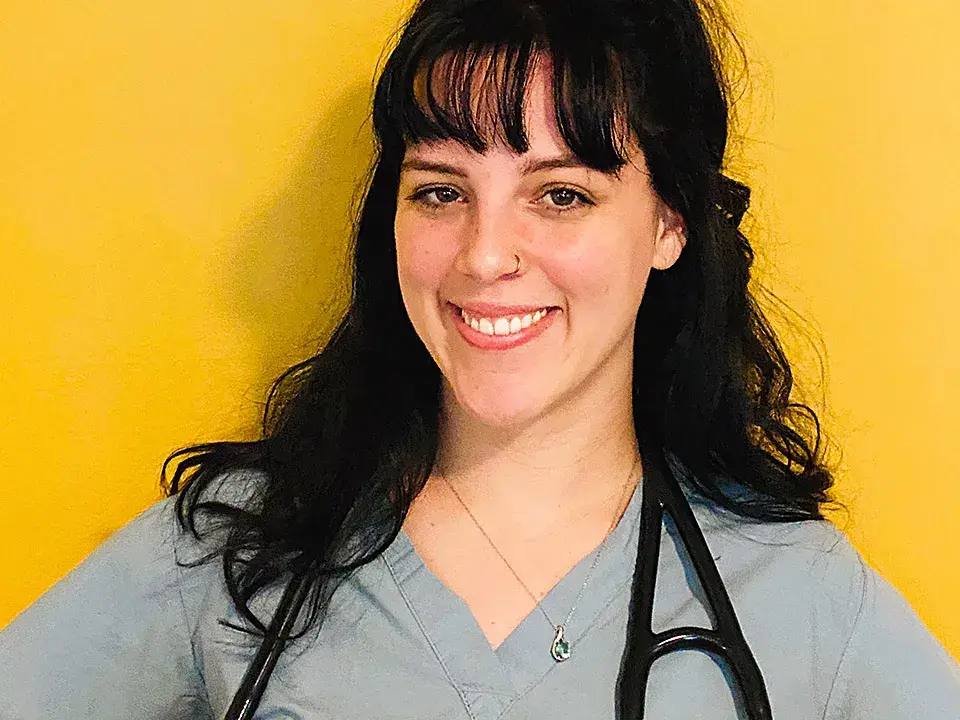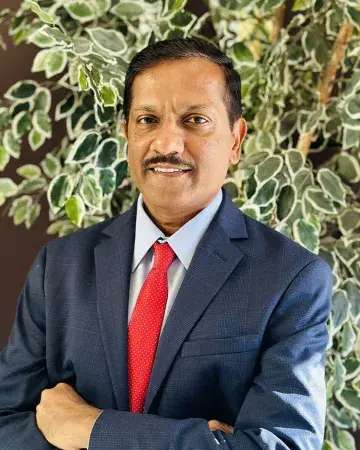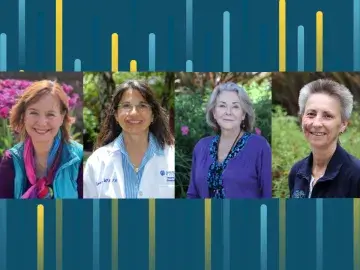Coming to Terms with the History of Unjust Healthcare for the LBGTQIA+ Community

Skye Schmelzer, (they/she), MPA ’21, believes it’s vital for healthcare workers to understand the history of care provided to the queer and transgender communities, which has often left them sidelined and alienated if not outright ignored.
“There’s a lot of injustice in the history of our services for queer and trans people and injustice that continues to this day,” said Schmelzer, who is a second year student in SMU’s Physician Assistant program.
With June being Pride Month, Schmelzer wrote an article about some of that history with the hope of destigmatizing care. The article was published by the LGBT PA Caucus, a national organization that advocates for queer and trans PAs and works to ensure health equity for the LGBTQIA+ community. Schmelzer is the incoming secretary of the caucus. They told us about their efforts to raise awareness.
What inspired you to write this piece?
For the last few years, I’ve been very interested in the history of HIV/AIDS in this country. I also just started my internal medicine rotation at the Los Angeles LGBT Center, which provides health services to this community. As June 5 approached, the 40th anniversary of the first official cases of HIV/AIDS in this country, I wanted to give some historical context so that we don’t continue making the same mistakes.
Why focus on the history of HIV/AIDS?
I was a history major in college and, shockingly, didn’t really get much exposure to the history of HIV/AIDS, which includes it being dubbed “the gay cancer.” Elected officials and healthcare experts limited research funds to a trickle for years while hundreds of thousands died.
As an undergrad, I came out as bisexual (I now identify as queer and genderqueer), and I immersed myself in the queer community there. The more I did that, the more I heard stories of people who had friends who died of AIDS. One summer, I talked extensively with a gay man who told me about having survivor’s guilt for being one of the only ones of his friend group who survived during the height of the HIV/AIDS epidemic. Hearing his story, and those from others, lit a fire in me.
You’ve chosen to focus on gender-affirming care, sexual health, and infectious disease, including HIV and AIDS. How does that play out in your education?
In addition to my seven required rotations, I have two elective rotations to complete. I’ve chosen to do both focused on those areas. I’m doing my required internal medicine rotation at the LA LGBT Center, and I’ll also be doing an elective there—focusing on gender-affirming care and sexual health. My second elective isn’t solidified yet, but I’m in talks with a gender-affirming surgical provider.
I’ve done a lot of research on HIV, AIDS, and gender-affirming care, which is a field of medicine that uses different modalities of therapy to facilitate a person’s transition, should they decide to do so. I’m constantly trying to be on top of the research so that I can provide the best possible care for people. I actually gave an impromptu presentation to my peers on how to incorporate gender-affirming care into a primary care setting. I’ve become a go-to person in my cohort when people have questions. Just yesterday I received an email from a friend who wanted to talk after having their first trans patient.
Why have you decided to focus on those areas of care?
If you look around at those areas, you have to ask yourself, ‘How did we get here?’ Why are things so bad? Why are we still in a position where queer and trans rights are not yet established and having to be fought for? Why is it that, nationwide, LGBTQIA+ healthcare isn’t yet an essential part of our curriculum for future healthcare providers? And how can we make these things better. You can only make things better by learning about the history. We can’t erase the past, but I want to use my knowledge of that and my passion to move forward and increase knowledge of and access to life-saving care.
What drew you to Samuel Merritt University?
I loved the mission statement, I loved the interview process, including seeing campus administrators involved and how the university worked with the PA program to introduce us to everything offered at SMU. As a queer person who grew up in the South, I wanted to go somewhere more accepting of people like me. Samuel Merritt is one of the most diverse campuses I’ve been to. And not just diverse, but also inclusive.
What stands out about your SMU experience?
I can’t imagine having done PA school anywhere else and receiving the same support and connections that I have here. I’ve found that when I’ve seen ways to improve the curriculum, it’s a very safe environment for speaking up. I’ve spoken with faculty about ways we could be more inclusive in the curriculum, and they have received it incredibly well. They’ve been so willing to hear feedback and willing to make changes in the curriculum, which is wonderful. I’m grateful to my faculty and glad to have chosen SMU.


